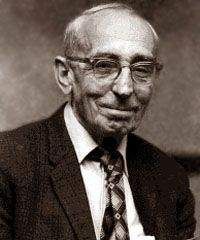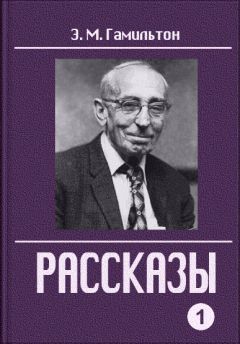Пользователь - o 3b3e7475144cf77c
who get in my way. When this affair has been settled and I have a little more leisure, come
and see me again, and I will show you how you can make your fortune and have an amusing
life."
"Thank you, sir. As it happens, what I like to do is to play the works of Beethoven on the
piano."
"Come and play them for the Führer," said the second in command, with a loud laugh which
somewhat startled his visitor. Lanny wondered: Did the eagle-man take a patronizing attitude
toward his Führer's fondness for music? Was he perchance watching for the time when he
could take control of affairs out of the hands of a sentimentalist and Schwarmer, an orator
with a gift for rabble-rousing but no capacity to govern? Had the Minister-Prasident's Gestapo
reported to him that Lanny had once had tea with the Führer? Or that he had spent part of the
previous evening in the Führer's favorite haunt?
When Lanny rose to leave, the lion-cub stretched himself and growled. The great man
remarked: "He is getting too big, and everybody but me is afraid of him."
VII
Four days and nights had passed since Johannes Robin had been taken captive; and Lanny
wondered how he was standing it. Had they been giving him a taste of those scientific tortures
which they had evolved? Or had they left him to the crude barbarities of the S.A. and S.S. such
as Lanny had read about in the Manchester Guardian and the Pink weeklies? He hadn't
thought it wise to ask the General, and he didn't ask the young Schutzstaffel Ober-leutnant
who sat by his side on their way to visit the prisoner.
Furtwaengler talked about the wonderful scenes on the National Socialist First of May. His
memories had not dimmed in eighteen days, nor would they in as many years, he said. He
spoke with the same naive enthusiasm as Heinrich Jung, and Lanny perceived that this was no
accident of temperament, but another achievement of science. This young man was a product of
the Nazi educational technique applied over a period of ten years. Lanny questioned him and
learned that his father was a workingman, killed in the last fighting on the Somme—perhaps by
a bullet from the rifle of Marcel Detaze. The orphan boy had been taken into a Hitler youth
group at the age of fifteen, and had had military training in their camps and war experience in
the street righting of Moabit, Neukoln, Schoneberg, and other proletarian districts of Berlin.
He was on his toes with eagerness to become a real officer, like those of the Reichswehr; the
S.S. aspired to replace that army, considering such transfer of power as part of the proletarian
revolution. Oberleutnant Furtwaengler wanted to click his heels more sharply and salute more
snappily than any regular army man; but at the same time he couldn't help being a naive
workingclass youth, wondering whether he was making the right impression upon a foreigner
who was obviously elegant, and must be a person of importance, or why should the Minister-
President of Prussia have spent half an hour with him on such a busy morning?
They were now being driven in an ordinary Hispano-Suiza, not a six-wheeled near-tank; but
again they had a chauffeur in uniform and a guard. There were hundreds of such cars, of all
makes, including Packards and Lincolns, parked in front of the Minister- Prasident's official
residence and other public buildings near by. Such were the perquisites of office; the reasons for
seizing power and the means of keeping it. Leutnant Furtwaengler was going to have a new
uniform, as well as new visiting cards; it was a great day in the morning for him, and his
heart was high; he needed only a little encouragement to pour out his pride to an American
who must be a party sympathizer—how could anyone fail to be? Lanny did his best to be
agreeable, because he wanted friends at court.
Johannes had been taken out of the Nazi barracks, the so-called Friesen Kaserne, to the main
police headquarters, the Polizei-prasidium; but he was still in charge of a special group of the
S.S. It was like the Swiss Guard of the French kings, or the Janissaries of the Turkish sultans—
strangers to the place, having a special duty and a special trust. Johannes represented a treasure
of several tens of millions of marks—Lanny didn't know how many, exactly. If he should take a
notion to commit suicide, Minister-Prasident Goring would lose all chance of getting that
portion of the treasure which had been stored abroad, nor could he get the part stored in
Germany without violating his Führer's "legality complex."
VIII
The car stopped before a great red brick building in the Alexanderplatz, and Lanny was
escorted inside. Steel doors clanged behind him—a sound which he had heard in the building of
the Sûreté Générale in Paris and found intensely disagreeable. He was escorted down a bare stone-
paved corridor, with more doors opening and clanging, until he found himself in a small room
with one steel-barred window, a table, and three chairs. "Bitte, setzen Sie sich," said the
Oberleutnant. The chair which Lanny took faced the door, and he sat, wondering: "Will they
have shaved his head and put him in stripes? Will he have any marks on him?"
He had none; that is, unless you counted spiritual marks. He was wearing the brown
business suit in which he had set out for his yacht; but he needed a bath and a shave, and
came into the room as if he might be on the way to a firing-squad. When he saw his daughter-
in-law's half-brother sitting quietly in a chair, he started visibly, and then pulled himself
together, pressing his lips tightly, as if he didn't want Lanny to see them trembling. In short,
he was a thoroughly cowed Jew; his manner resembled that of an animal which had been
mistreated—not a fighting animal, but a tame domestic one.
"Setzen Sie sich, Herr Robin," ordered the Oberleutnant. On Lanny's account he would be
polite, even to a Missgeburt. Johannes took the third chair. "Bitte, sprechen Sie Deutsch"
added the officer, to Lanny.
Two S.S. men had followed the prisoner into the room; they closed the door behind them and
took post in front of it. As Lanny was placed he couldn't help seeing them, even while absorbed in
conversation. Those two lads in shining black boots and black and silver uniforms with skull and
crossbones insignia stood like two monuments of Prussian militarism; their forms rigid, their
chests thrust out, their guts sucked in—Lanny had learned the phrase from his ex-sergeant
friend Jerry Pendleton. Their hands did not hang by their sides, but were pressed with palms
open and fingers close together, tightly against their thighs and held there as if glued. Not the
faintest trace of expression on the faces, not the slightest motion of the eyes; apparently each
man picked out a spot on the wall and stared at it continuously for a quarter of an hour. Did
they do this because they were in the presence of an officer, or in order to im press a foreigner—
or just because they had been trained to do it and not think about it?
"Johannes," said Lanny, speaking German, as requested, "Irma and I came as soon as we
heard about your trouble. All the members of your family are safe and well."
"Gott set Dank!" murmured the prisoner. He was holding onto the chair in which he had
seated himself, and when he had spoken he pressed his lips together again. For the first time
in his life Johannes Robin seemed an old man; he was sixty, but had never shown even that
much.
"The situation is a serious one, Johannes, but it can be settled for money, and you and your
family are to be allowed to go to France with us."
"I don't mind about the money," said the Jew, quickly. He had fixed his eyes on Lanny's face
and never took them away. He seemed to be asking: "Am I to believe what you tell me?" Lanny
kept nodding, as if to say: "Yes, this is real, this is not a dream."
"The charge against you is that you tried to carry money out of the country on your yacht."
"Aber, Lanny!" exclaimed the prisoner, starting forward in his chair. "I had a permit for
every mark that I took!"
"Where did you put the permit?"
"It was in my pocket when I was arrested."
"Are you sure of that?"
"Absolutely. I would have been mad to try to carry money out of Germany without it."
Lanny was not too much surprised by this. "We have to assume that some malicious person
destroyed the paper, Johannes."
"Yes, but there will be a record of it in the office of the Exchange Control Authority."
"I have been told on the best possible authority that no such record exists. I am afraid we
shall have to assume that some mistake has been made, and that you had no valid permit."
Johannes's eyes darted for the fraction of a second toward the S.S. officer. Then he said, as
humbly as any moneylender in a medieval dungeon: "Yes, Lanny, of course. It must be so."
"That makes a very serious offense, and the punishment, I fear, would be more than your
health could stand. The only alternative is for you to part with your money. All of it."
Lanny was prepared for some anguish, some kind of Shylock scene. "Justice! the law! my
ducats, and my daughter!" But Johannes sank back in his chair and resumed his dull tone. "I
have been expecting that, Lanny. It is all right."
The man's aspect and manner revealed even more than his words. Lanny knew how he loved his
money; how hard he had worked for it, how many plans he had for the use of it. But here he
was kissing it good-by, as casually as if he had been a darling of fortune whose interest was
dancing, playing the piano, and listening to parlor Pinks discussing the expropriation of the
expropriators!
What had happened to him to produce such a change? Had he been worked over with rubber
hose, which leaves few marks? Had he seen his fellow Jews being compelled to lash one
another's faces with whips? Had he lain awake all night listening to the screams of men with
camphor injected in their urinary ducts? Something of the sort must have happened.
IX
The visitor had to leave no uncertainty in his friend's mind. He had to be as implacable as
Minister-Prasident Goring himself. He said: "It means everything you have, Johannes—both
here and abroad."
"I understand."
"They have had a man in your office and have all the records."
"I had become aware of that."
"I have gone into the situation carefully, and I'm afraid you will have to give up."
"If they will really let me go, and my family, they may have everything."
"I have the word of Minister-Prasident Goring, and I believe that he means what he says. He
has explained in the clearest language that he has no interest in you or yours, and will be glad
to be rid of you."
"I am sure that Minister-Prasident Goring is a man of honor, and I accept his promise."
"He wants your money to use for the upbuilding of National Socialism. From his point of
view that is, of course, a worthy purpose."
"The money would be of no use to me in this place."
"Exactly, Johannes. We can go abroad and you and Robbie can start business, again. Irma
will back you."
"Thank you, Lanny. I'll get along, I am sure."
"I have had to agree, and you have to agree, not to say a word about the case to anybody.
We'll just get out and forget it."
"God knows I don't want to talk about it, Lanny. What good would that do me?"
"All right, then. Papers will be brought for you to sign."
"I will sign them."
"Some papers must go to New York, you know. It should take a week or two. Irma and I will
wait here, and take you and the others out with us."
"I will never be able to express my gratitude, Lanny."
"Don't waste any energy on that. All we want is to have the family with us on the Riviera. We
can have a good time without so much money. Are you being treated reasonably well?"
"I have no complaint."
"Is there anything I could send you—assuming I can get permission?"
"I have everything I need—everything unless perhaps some red ink."
Johannes said this without the flicker of an eyelash; and Lanny answered, without change of
tone or expression: "I will see if it is possible to get some."
Rote Tinte! "Oh, the clever rascal!" Lanny thought. "His mind works like greased lightning."
Johannes could sit there in the presence of a Schutzstaffel officer and two privates, and with
all this pressure of terror and grief upon him—in the midst of having to make the most fateful
decision of his life—he could think up a way to tell Lanny what he wished him to know, and
without the slightest chance of his enemies' guessing what he had said!
For fifteen years Lanny and his old friend had been watching the experiment in the Soviet
Union and arguing about it. Johannes, taking the negative, had delighted himself by collecting
ironical stories, to be repeated to the credulous Lanny, and over Lanny's shoulder to
Johannes's two misguided sons. One such story had to do with two German business men, one
of whom was going to make a trip into the proletarian paradise, and promised his friend to
write a full account of what he found there. "But," objected the friend, "you won't dare to write
the truth if it's unfavorable." The other replied: "We'll fix it this way. I'll write you everything is
fine, and if I write it in black ink it's true, and if in red ink the opposite is true." So he went,
and in- due course his friend received a letter in black ink, detailing the wonders of the
proletarian paradise. "Everybody is happy, everybody is free, the markets are full of food, the
shops well stocked with goods—in fact there is only one thing I cannot find, and that is red ink."
While Lanny and the Oberleutnant were driving to the hotel, the latter inquired: "What does
he want red ink for?"
Lanny, who wasn't slow-minded himself, explained: "He keeps a diary, and writes it in red
ink to keep it separate from his other papers."
The officer replied: "One cannot keep a diary in prison. They will surely take it away from




